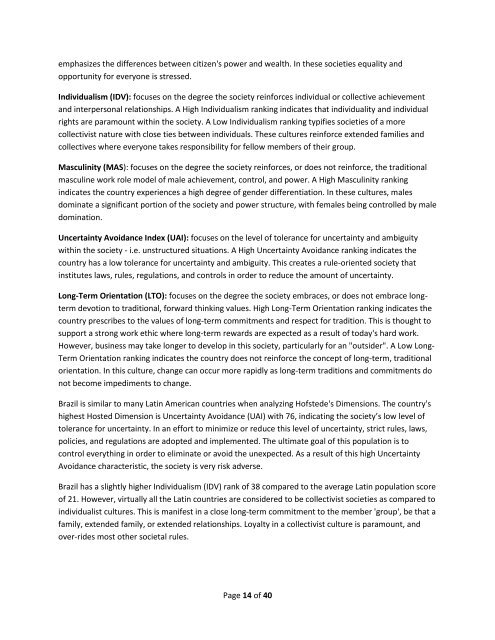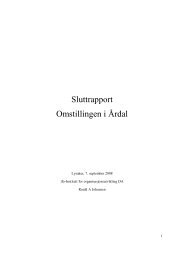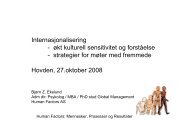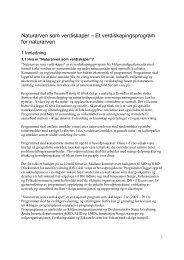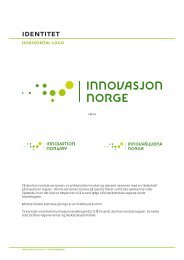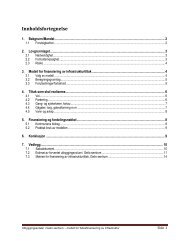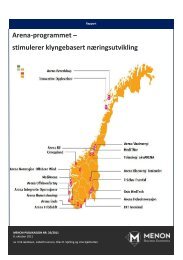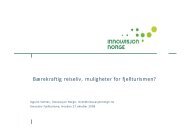Brazil, R&D and the role of clusters
Brazil, R&D and the role of clusters
Brazil, R&D and the role of clusters
You also want an ePaper? Increase the reach of your titles
YUMPU automatically turns print PDFs into web optimized ePapers that Google loves.
emphasizes <strong>the</strong> differences between citizen's power <strong>and</strong> wealth. In <strong>the</strong>se societies equality <strong>and</strong><br />
opportunity for everyone is stressed.<br />
Individualism (IDV): focuses on <strong>the</strong> degree <strong>the</strong> society reinforces individual or collective achievement<br />
<strong>and</strong> interpersonal relationships. A High Individualism ranking indicates that individuality <strong>and</strong> individual<br />
rights are paramount within <strong>the</strong> society. A Low Individualism ranking typifies societies <strong>of</strong> a more<br />
collectivist nature with close ties between individuals. These cultures reinforce extended families <strong>and</strong><br />
collectives where everyone takes responsibility for fellow members <strong>of</strong> <strong>the</strong>ir group.<br />
Masculinity (MAS): focuses on <strong>the</strong> degree <strong>the</strong> society reinforces, or does not reinforce, <strong>the</strong> traditional<br />
masculine work <strong>role</strong> model <strong>of</strong> male achievement, control, <strong>and</strong> power. A High Masculinity ranking<br />
indicates <strong>the</strong> country experiences a high degree <strong>of</strong> gender differentiation. In <strong>the</strong>se cultures, males<br />
dominate a significant portion <strong>of</strong> <strong>the</strong> society <strong>and</strong> power structure, with females being controlled by male<br />
domination.<br />
Uncertainty Avoidance Index (UAI): focuses on <strong>the</strong> level <strong>of</strong> tolerance for uncertainty <strong>and</strong> ambiguity<br />
within <strong>the</strong> society - i.e. unstructured situations. A High Uncertainty Avoidance ranking indicates <strong>the</strong><br />
country has a low tolerance for uncertainty <strong>and</strong> ambiguity. This creates a rule-oriented society that<br />
institutes laws, rules, regulations, <strong>and</strong> controls in order to reduce <strong>the</strong> amount <strong>of</strong> uncertainty.<br />
Long-Term Orientation (LTO): focuses on <strong>the</strong> degree <strong>the</strong> society embraces, or does not embrace longterm<br />
devotion to traditional, forward thinking values. High Long-Term Orientation ranking indicates <strong>the</strong><br />
country prescribes to <strong>the</strong> values <strong>of</strong> long-term commitments <strong>and</strong> respect for tradition. This is thought to<br />
support a strong work ethic where long-term rewards are expected as a result <strong>of</strong> today's hard work.<br />
However, business may take longer to develop in this society, particularly for an "outsider". A Low Long-<br />
Term Orientation ranking indicates <strong>the</strong> country does not reinforce <strong>the</strong> concept <strong>of</strong> long-term, traditional<br />
orientation. In this culture, change can occur more rapidly as long-term traditions <strong>and</strong> commitments do<br />
not become impediments to change.<br />
<strong>Brazil</strong> is similar to many Latin American countries when analyzing H<strong>of</strong>stede's Dimensions. The country's<br />
highest Hosted Dimension is Uncertainty Avoidance (UAI) with 76, indicating <strong>the</strong> society’s low level <strong>of</strong><br />
tolerance for uncertainty. In an effort to minimize or reduce this level <strong>of</strong> uncertainty, strict rules, laws,<br />
policies, <strong>and</strong> regulations are adopted <strong>and</strong> implemented. The ultimate goal <strong>of</strong> this population is to<br />
control everything in order to eliminate or avoid <strong>the</strong> unexpected. As a result <strong>of</strong> this high Uncertainty<br />
Avoidance characteristic, <strong>the</strong> society is very risk adverse.<br />
<strong>Brazil</strong> has a slightly higher Individualism (IDV) rank <strong>of</strong> 38 compared to <strong>the</strong> average Latin population score<br />
<strong>of</strong> 21. However, virtually all <strong>the</strong> Latin countries are considered to be collectivist societies as compared to<br />
individualist cultures. This is manifest in a close long-term commitment to <strong>the</strong> member 'group', be that a<br />
family, extended family, or extended relationships. Loyalty in a collectivist culture is paramount, <strong>and</strong><br />
over-rides most o<strong>the</strong>r societal rules.<br />
Page 14 <strong>of</strong> 40


